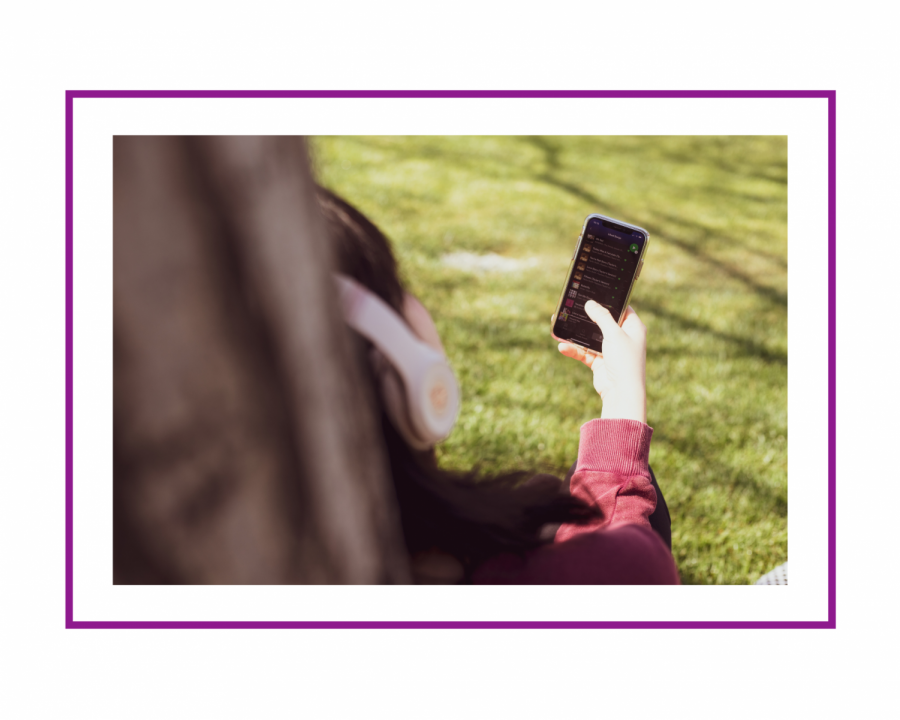Headphones in, healing mode on
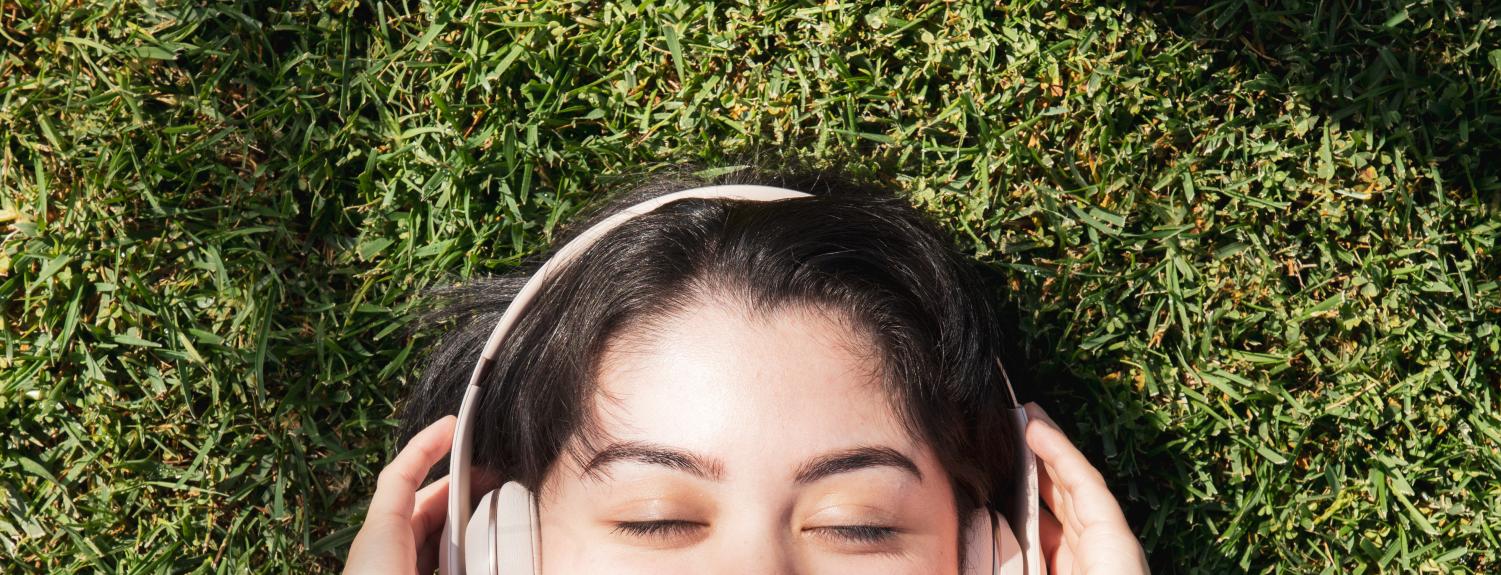
For an ordinary activity such as listening to music, there are many different components we all share. It is a melodic way of easing our minds, elevating our moods, embracing heartaches and simply creating vibes in any environment.
One of the aspects we tend to miss about music, while we’re doing the dishes or dancing with friends, is that we’re essentially healing in the process.
“Music has always been an important form of escapism for me and a way for me to cope with hardships and trauma. I love that an artist can share music about their own hardships and make it universally relatable to the hardships of their audience and fans,” said San Francisco State University student Isabella Doumitt.
Everyone has different experiences with music but the power of music can be more profound than we realize. According to the Music Therapy Program at UCSF, music therapy is a form of therapy that connects the mind, body and spirit. It supports pain management, reduces stress, enhances emotional expression and develops coping strategies.
Natalie Moore is an LA-based holistic psychotherapist, as well as a licensed marriage and family therapist, who focuses on “empowering individuals to make positive changes to optimize their life,” according to her website.
“There are different elements of music that are therapeutic,” said Moore. “One of the elements is the rhythm aspect, which actually stems back to our earliest relationships that we had when we’re an infant.”
Rhythm is what many music listeners gravitate towards. If it’s an upbeat or mellow song, the production or beat can transport you to places that are reminiscent of that sound.
For Hannah Nichols, 22, of Austin, Texas, music is essential. Nichols acknowledges music as a way of helping her get through life.
“Music is important to me because it heals me and keeps me going. It also makes me happy,” said Nichols.
The lyrics of songs allow listeners to connect to an artist or even relate to what an artist is going through. Songs have the capability to bridge the divide between the listener and musician. Whether it’s a love ballad or a screamo song – if it speaks to you and you develop a personal connection, no one can take that away.
“Another element is the lyrics of the music that we’re listening to. It can be therapeutic to listen to music where the lyrics really speak to your internal experience. They might speak to events that you’ve had in your life, [or] they might speak to emotions that you’re feeling,” said Moore.
Music grants listeners self-expression either through the rhythm or lyrics. It allows the listeners to escape their surroundings.
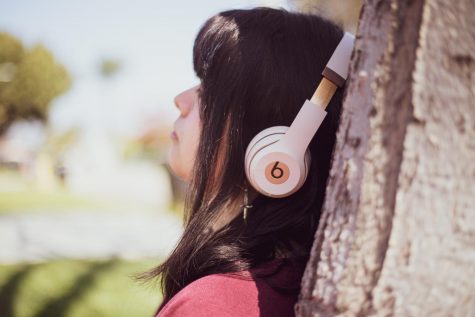
“I can’t imagine my day-to-day life going on a walk without my earphones or sitting down to draw without any music. It aids me to have a more precise thought process and free myself of stress after my job. I can confidently say that music helps me live because it is crucial to have an escape from all the stressors around you in today’s society,” said San Francisco Sunset district resident Nicole Bondarenko, 22.
Wendell Hanna, professor of Music Education at SFSU, discussed how one’s body becomes relaxed due to music.
“If you’re listening to music that you enjoy, you go into what’s called parasympathetic mode,” said Hanna. “Your heart rate lowers, your blood pressure lowers, your breathing becomes deeper and you start to feel relaxed – this is all very good for the body,” said Hanna.
According to Harvard Medical School, “the parasympathetic nervous system acts like a brake.” It promotes the “rest and digest” response that calms the body down after the danger has passed.”
Music therapy isn’t just for listeners. Musicians, songwriters and even poets can benefit from a form of music therapy. It also doesn’t matter if one is just starting as a beginner in these fields.
According to a 2020 AARP Music and Brain Health Survey, “a nationally representative survey of 3,185 adults found that listening to music — whether in the background, by focused listening to recordings or at musical performances — had a small positive impact on mental well-being, depression and anxiety.”
Some people also find making music therapeutic.
“[Artists] can take that therapeutic element even further because they’re creating a rhythm that is unique to them … It can take past painful experiences and memories, and turn them into something that that person has more of a sense of control around. Taking something negative and turning it into a positive,” said Moore.
The next time you’re listening to music – while completing a household chore, driving around town, dancing with friends or crying over a breakup – take a deep breath, sink into that parasympathetic mode and let the music heal you.
Songs with a deeper meaning:
Hannah Nichols, 22-year-old
“A song that has always been important to me is Trouble on Central by Buddy. I listen to it whenever I am feeling down, or upset. It makes me deal with my emotions and actually feel. Not ignore,” said Nichols.
Ariana Solorio, 21-year-old
“Ribs by Lorde. It reminds me of all my college experiences with my friends. I love listening to that song when I want to feel nostalgic and missing the full college experience since it was cut short,” said Solorio.
Isabella Doumitt, 22-year-old
“A song that means a lot to me is A Little Bit Longer by the Jonas Brothers. This song is particularly meaningful for me. I would listen to it during moments of childhood trauma when I was younger and continued to listen through difficult times in my life as I’ve gotten older,” said Doumitt.
Nicole Bondarenko, 22-year-old
“На заре – Brainstorm – This song reminds me of my great-grandmother. I remember coming to San Francisco to be with her while she was in the ICU. For the week that we’ve been in the city, we all knew where it was going. At the end of the week, we were given a slight glimpse of hope that she would be okay and we would all go back to good. After the excellent news, I went on a walk to the beach and was thrilled that she actually woke up and was responsive that day. Little did I know that would be the last time I saw her alive. The songs’ lyrics talk about youth and how much one can dream and do while being young, which makes me angry and sad that my great-grandmother didn’t have this youth. It was stripped from her during WW2. I just hope that wherever she is now, she is happy. This song has significant meaning to me, but I can’t listen to it without crying,” said Bondarenko.
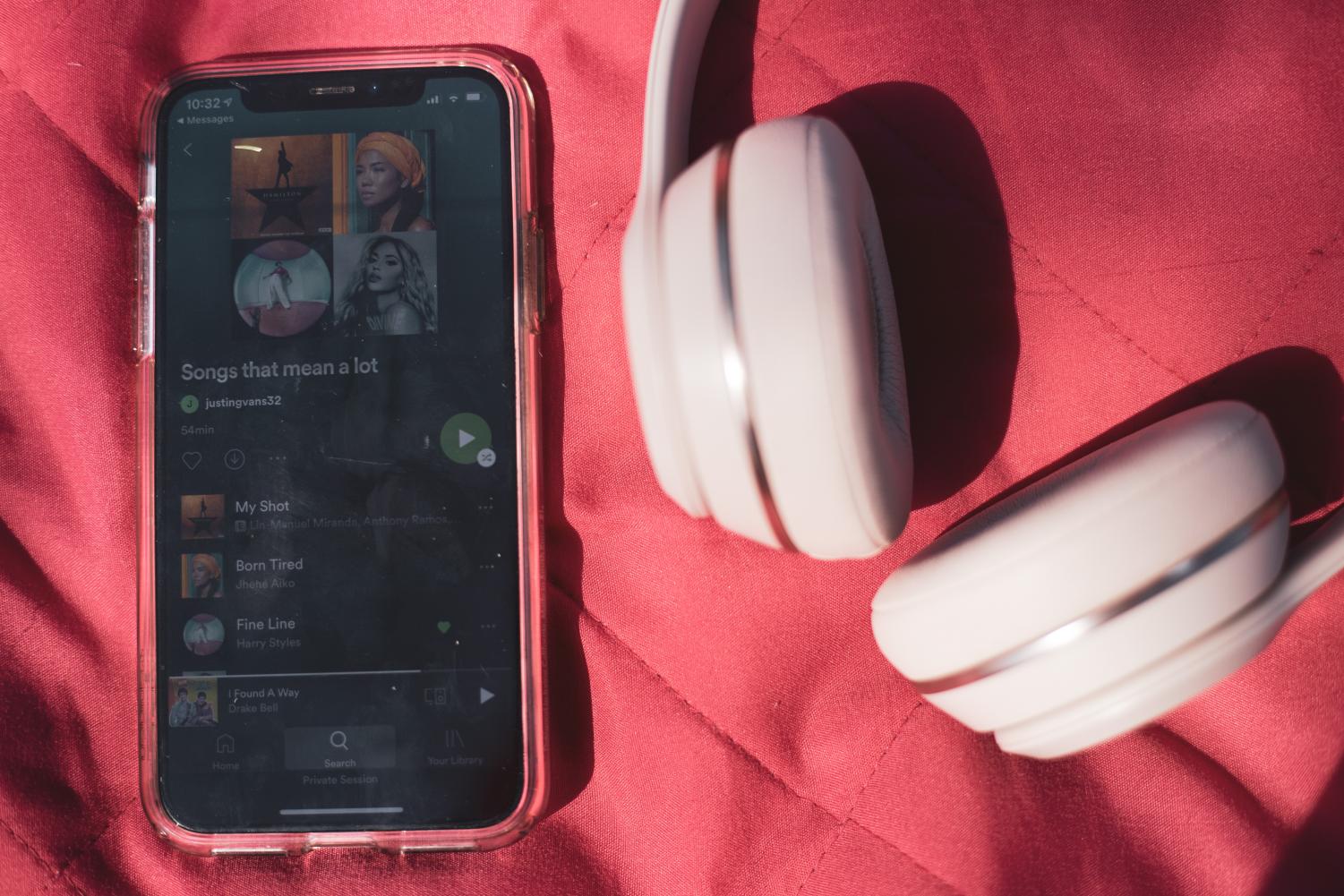
Here is a Spotify playlist including songs that mean a lot to people. This playlist was cultivated by sources & strangers.
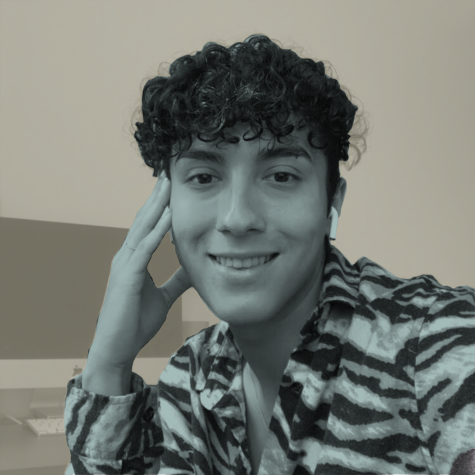
Justin Garcia (he/him) is a senior at SF State and serves as the social media editor for Xpress Magazine. His interests are fashion and music and he is...


